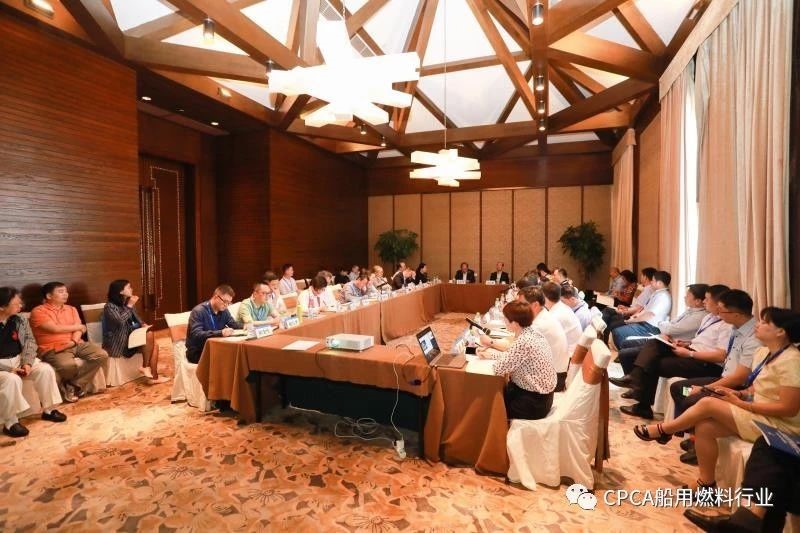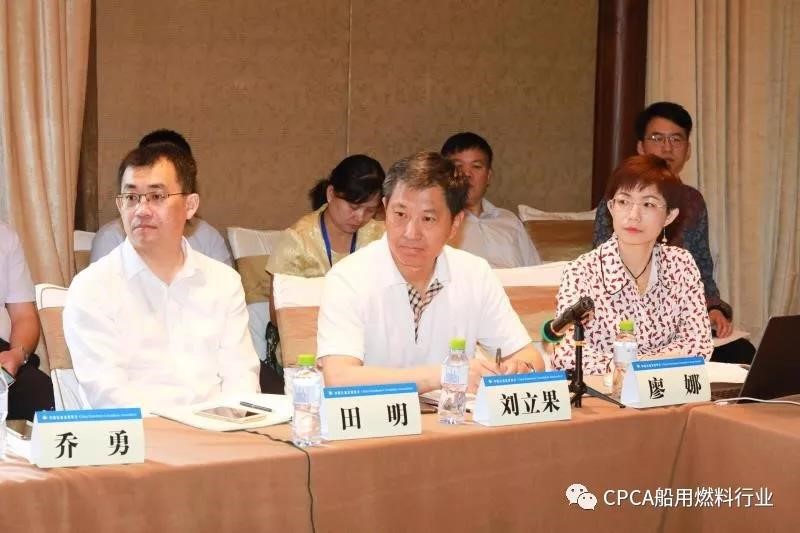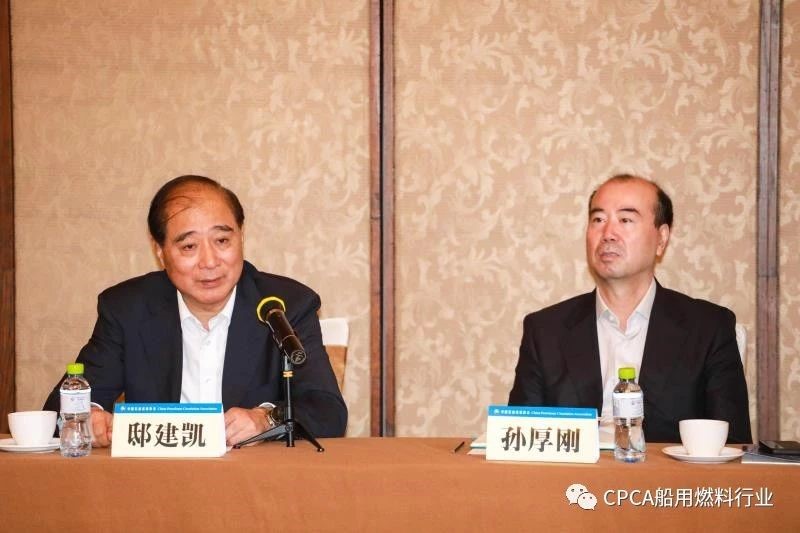On March 21-22, 2019, The Marine Fuel Industry Committee "Low Sulfur Fuel Symposium" was held in Hainan
Source: Wechat Official ID: China Petroleum Circulation Association-Marine Fuel Industry Committee (CPCA-MFC): MFC “Low Sulfur Fuel Symposium” held in Hainan.
On 21-22 March, 2019, The 2019 Hainan Free Trade Zone (port) International Energy Trade Summit and China Petroleum Circulation Association(CPCA) Annual Meeting was held in Haikou City, Hainan Province on 21-22 March, 2019, hosted and organized by CPCA.
On the occasion of the summit, the CPCA-MFC held a seminar on low-sulfur fuels on the morning of the 22nd. More than 40 representatives from the industry attended the seminar.

The seminar was co-hosted by Liu Liguo, MFC Secretary-General and Liao Na, Vice President of Shanghai Ganglian Energy Technology Information Co., Ltd(GL Consulting). Ms. Liao Na shared the policy changes of the industry in2 018 and the new trends in 2019. She indicated the fuel industry currently faces five major challenges-low sulfur fuel supply, economic and trade, shipping trends, finance and credit, and domestic marine oil exports, along with changes and variables in the future market.

Following Ms. Liao Na’s share,
representatives from various fields in the industry shared perspectives on the
supply and guarantee of low-sulfur fuel resources, the quality control of fuel
measurement, the response mechanism of low-sulfur policies in the Yangtze River
Delta region, the export tax rebate policy for general trade fuel oil,
logistics optimization, ship-owners’ demand and expectations for MFC’s future.
In addition, the attendees jointly agreed
and made an appeal that the domestic trade oil industry needs orderly
management in compliance with law and regulations. The MFC is expected to
contribute to the industry by establishing a regulation-complied, quality and
quantity assured, healthy and orderly market.
Di Jiankai, President of CPCA put forward
two expectations of MFC in the seminar:
First, he expects companies that are MFC
members be in the frontline of the industry by leading and guiding the
pollution prevention and control work, and strictly implementing the national
coastal low-sulfur fuel policy (effective on 1 January this year);
Second, members should promote the reform
and innovation of the industry. The China import and export data is not
promising in January and February 2019. As a traditional industry, the marine
fuel industry will face elimination if it is not innovative or reformed. New
models such as “Internet + bunker oil supply” are bound to be the development
direction of the bunker oil supply industry in the future.
Sun Hougang, executive director of the MFC,
said in his concluding remark: The era of low sulfur has arrived, and the
industry is facing unprecedented challenges, mainly from four aspects:
The first one is quantity. In 2017 and
2018, the supply of domestic trade fuel and bonded bunker fuel has rebounded.
If China's low-sulfur fuel resources can be steadily increased in the future,
it will undoubtedly be a major positive impact for China's bunker fuel supply
market. Mr. Sun called on member companies to step up their efforts and ensure
the supplying quantity.
The second challenge is quality. After the
introduction of the low-sulfur policy, the environmental authorities, quality
inspection department and ship-owners will be more stringent on the control and
monitoring of oil quality;
The third challenge is about funding. In
2020, the annual consumption of global marine fuels will be stable at around
300 million tons. However, the process of production, blending and processing
of low-sulfur fuels is very different from high-sulfur fuels, which will cause
prices to rise. In addition, due to the particularity of the industry, it
requires higher funding amount and the settling cycle is longer. Thus, funding
will have a significant impact on the companies.
The fourth challenge is the logistics. The
pressure on logistics is mainly from the transportation, storage and
short-selling of fuel oil, which will also be the focus of future research and
breakthrough of the company.



